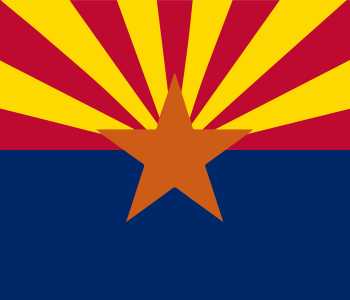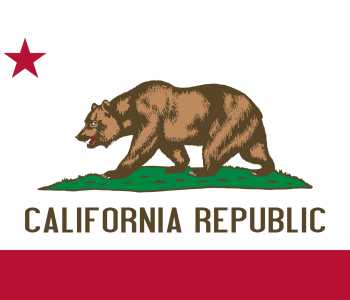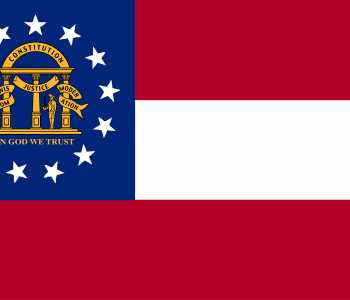Utah Business License

Information on how to Open a Small Business in Utah
When planning a small business, you should first visit Utah's official state government website at Utah.gov. There you will find links to a number of useful websites that have valuable information for new startups. For example, you will find information relating to:
• Determining if your business idea is a good one
• Coming up with the right organizational structure for your business
• Creating a business plan
• Day-to-day operations
• Financing and financial resources
In Utah, the Governor's Office of Economic Development or GOED partners with the United States Small Business Administration (SBA). Together, the two agencies provide beneficial information for small business owners. To find out more, you may visit either one's web page or drop by the SBA's district office which is located in Salt Lake City.
The state also operates a number of Small Business Development Centers (SBDCs). Utah's SBDCs are part of a national network, connecting you with vast resources in consulting, startup capital, marketing, and finding a business mentor.
Utah Business Licenses
Just because you are opening a business in Utah does not mean you will need a license. Even so, a good number of Utah businesses do need one or more licenses or permits. In addition, nearly all Utah business owners are required to register with the state. To do this, utilize the Utah One Stop Business Registration tool, which is overseen by the state's Department of Commerce (DOC). By taking advantage of the OneStop platform, you can simultaneously register with a number of state agencies such as:
• Department of Commerce (DOC)
• Department of Environmental Quality
• Department of Workforce Services
• Labor Commission
• Tax Commission
In addition to statewide licenses, you could also need one or more local permits. In Utah, all small business owners are required to obtain a license from the local government where they plan to conduct transactions. If you operate in more than one location, you could need a local license in each area. Visit the websites of your county and city government to find out more. Utah County and Salt Lake City both have a great deal of information about local business licenses on their websites. After performing some research, you may even discover that your particular business is exempt from licensing under state or federal law.
Recordkeeping Best Practices
Once you have obtained the necessary permits or licenses, you could then be required to register your business with the state. This is especially true if you are a corporation or Limited Liability Company (LLC). As an example, you could be required to file organizational documents for your business with the Division of Corporations and Commercial Code (DCCC), which is a division of the DOC. To find out more, look for Business Entities information on the DCCC's official web page.
Procedures for Obtaining Professional Licensing
Certain professions and occupations are required to obtain licensing from the State of Utah. If yours is one such occupation, you will likely come in contact with the Division of Occupational and Professional Licensing (DOPL). DOPL is the statewide agency that oversees almost all of the professional regulatory boards and commissions in the state of Utah. To see if you are required to have a license, visit the DOPL's website. From there, you can select a profession or occupation and then click on a listed item to find out more information.
Doing Business As, Assumed Names, or Fictitious Names
In Utah, you may choose to operate under your own name of that of a business name. Additionally, corporations, LLCs, and other types of businesses often register with the state under one name and then later begin doing business under a different one. The name you are doing business under may be referred to as your assumed name, trade name, fictitious name or "Doing Business As" DBA. Keep in mind that certain businesses such as sole proprietorships, LLCs, and corporations must file paperwork with the DCCC if they plan to conduct business under an assumed name.
Service or Trademark Registration
The law defines service marks, trademarks, and trade names different. Even so, they all have a similar legal function, which is to distinguish certain goods, services, or businesses. They are also used to uniquely identify goods, services, and businesses from that of their competition (or future competition). You may choose to register your trademark or service mark with the state of Utah-a process that is different from federal registration. To learn more, please visit the DCCC's official website, where you will find specific information related to trademarks.
FAQ
Who is Required to License Their Utah Business?
All businesses must be licensed by the municipality where they conduct business. Although there are general guidelines for licensure in place, each city may have its own requirements and procedures. To find out the specific standards for each license, it’s best to contact your county or city office. Below are links to help you locate the contact information for your municipality. Depending on what type of business you run, certain licenses and registrations are required by the State of Utah.
You must follow these steps to do business in Utah:
1. Register your business name and entity type (e.g. corporation, sole proprietorship, etc.). You can do this by filing with the Utah Department of Commerce Division of Corporations and Commercial Code.
2. If you are planning to sell goods or products in Utah, you must apply for a Sales & Use Tax License at the Utah State Tax Commission.
3. If you are planning to have employees, you must apply for an employee income tax withholding number from the Utah State Tax Commission. You must also apply for an Unemployment Insurance Employer ID Number from the Department of Workforce Services.
4. Get a city license for your business in the city you are located.
The state of Utah has "one stop" online business registration that guides you through the application at https://secure.utah.gov/osbr-user/user/welcome.html. However, it does not complete the entire city business license process as explained below.
What Information is Required to Register with the State of Utah?
1. As stated above, you will need to register your business name, which can either be a corporate name or a “doing business as†name. This name should not be used by anyone else. You will also need to register your business’ entity type.
2. Business activities, which means explaining what kind of business you are going to be running. You must ensure that you are permitted to carry out that activity in the area, so make sure you check the zoning laws in your city.
3. Start date – what day will you open your business? When will you hire employees?
4. Names, addresses, phone numbers, email addresses, social security numbers, etc. for each owner.
5. If you are a corporation or LLC, you will need a Federal ID Number as well.
What are the Fees for a Utah Business License?
These fees must be paid in addition to any city fees. Each State agency will require a separate fee. You will need to pay fees for filing with the Utah Department of Commerce and Division of Corporations and Commercial Code. There may also be other agencies that could regulate your business. You can pay the fees with a credit card, and the fees usually range between $22.00 and $52.00.
Why is Utah Licensing Necessary?
Cities issue licenses to businesses in order to ensure that:
* The location has been properly zoned
* The building in which the business will operate will comply with fire safety codes.
* All state and local codes will be followed to ensure safety and well-being for citizens.
* Businesses are properly regulated.
What are the Requirements to Apply for a Business License in the State of Utah?
All commercial Utah business licenses should be checked for compliance with zoning, building codes, and fire safety codes.
You must comply with all state regulations if you operate a food-preparation business.
However, this is what you will most likely need to apply for a General Utah Business License for each city.
* Completed city corporate application for a new company, along with a Regulatory License form.
* All applicable fees.
* Registration with the Utah State Department of Commerce (business Name, Corporation).
* LLC, partnership) at www.commerce.utah.gov/.
* If applicable, the State Sales Tax Number.
* Federal Tax ID number (if applicable).
This information will make the application process easier if it is available to you when applying for your Utah business license. Accessing the website of the city where your business activity is located is the easiest way to submit an application. Many cities offer easy to follow instructions and allow you to apply online without having to visit the city. The State of Utah's online one-stop registration collects some information, but you will still need to submit the application to the city and pay any fees.
What is the Average Time it Takes to Get a Utah Business License?
Im a new Text block ready for yMost business licenses can be issued in 30 days. Contact the county or city where your business activity will be by calling or emailing the appropriate department (e.g., building, fire, health, etc.).our content.
How Much Does it Cost to Apply for a Utah Business License?
The location of each license will affect the price. Salt Lake City charges a $75 non-refundable fee, while St. George charges $50. Additional fees may be required for certain types of businesses.






